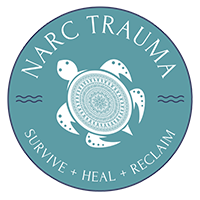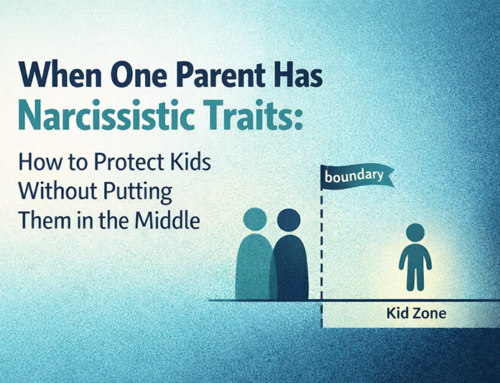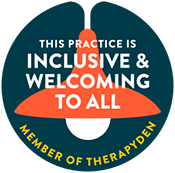Understanding the Subtle Red Flags of Narcissism

By Brenda Stephens, Licensed Professional Clinical Counselor
Narcissism can often be hard to detect, especially in your personal relationships. While many people think of narcissists as overtly arrogant and self centered, the subtle signs can be more challenging to identify. In this blog, we’ll explore the nuanced red flags that may indicate narcissistic behavior, helping you protect your well being and foster healthier connections.
Defining Narcissism and Its Impact
Understanding narcissism is essential for identifying its traits. We’ll discuss the psychological definition of narcissism and how it manifests in everyday interactions, laying the groundwork for recognizing its impact.
At its core, narcissism often revolves around a deep seated need for admiration, coupled with an inflated sense of self-importance. It’s not merely about being vain; it’s a pervasive behavior that impacts not just the narcissist but those around them. For instance, think about a casual conversation with a friend who seems only interested in sharing their achievements, often overshadowing your own experiences. This is a subtle yet clear sign of narcissistic tendencies.
Moreover, the effects of narcissism can ripple through relationships, leading to diminished emotional support and a cycle of emotional neglect. As you start to recognize these characteristics, it opens the door to healthier communication. When we better understand what narcissism looks like, we can protect ourselves more effectively.
Identifying the Subtle Red Flags
One particular red flag to watch out for is the way a narcissist may often dismiss your feelings. Their inability to empathize can leave you feeling invalidated. For example, if you share a concern, they might twist the conversation back to their own issues or even make you feel guilty for worrying, making it seem like your feelings are a burden.
Additionally, keep an eye on their fishing for compliments. A narcissist might frequently seek out positive reinforcement, requiring constant validation. It’s not just about wanting to be appreciated; it often serves to bolster their fragile self esteem. The challenge lies in how this behavior can manipulate others into feeling responsible for their well being, which can become highly draining.
As we break these behaviors down, you’ll find that recognizing patterns can be a transformative step towards reclaiming your emotional space. It’s not merely about accepting these traits but understanding how they affect your interactions.
The Role of Gaslighting in Narcissistic Relationships
Gaslighting is one of the more damaging tactics employed by narcissists. We’ll explore what gaslighting looks like and how it can distort your perception of reality, making it difficult to identify abusive behaviors.
When a narcissist engages in gaslighting, it often feels like you’re losing your grip on reality. They may twist facts or deny past events in a way that makes you question your memories or perception. Have you ever felt confused after a conversation, unsure whether you said something or if it was entirely made up? That doubt is a hallmark of gaslighting.
The emotional toll of gaslighting can be severe, often leading to anxiety, depression, and a sense of isolation. As this cycle continues, it can create an environment where the victim feels increasingly dependent on the narcissist for validation and reality-checking. Learning to recognize the signs is vital for regaining your sense of self and truth.
Above all, validating your own experiences and emotions is key in breaking free from gaslighting. Understand that it’s not just about recognizing their manipulation but also empowering yourself to reclaim your narrative.
Recognizing Your Feelings as Valid
Many fall victim to narcissists because they doubt their own feelings. This section will highlight the importance of trusting your emotions and recognizing when something feels off in a relationship.
Often, narcissists skillfully manipulate situations to make you question your feelings. They may suggest that you’re being overly sensitive or that your reactions are unjustified, creating a cloud of uncertainty around your emotions. It’s essential to understand that your feelings are real and valid, regardless of what they say.
Encouraging yourself to recognize your emotions is the first step towards healing. Journaling can be a fantastic way to process your thoughts and feelings, enabling you to pinpoint moments of discomfort that seem to correlate with the narcissist’s behavior. When you write down your experiences, patterns often emerge, illuminating aspects of the relationship that may have previously felt vague.
Make it a priority to surround yourself with supportive people who validate your feelings, rather than questioning them. This support network can serve as an anchor, restoring your confidence in your emotions and helping you reclaim your voice.
Protecting Yourself from Narcissistic Influence
Protecting yourself begins with setting firm boundaries. Clearly define what is acceptable and what isn’t; this clarity can significantly reduce a narcissist’s ability to manipulate you. For instance, if they routinely interrupt you, make it known that you expect to be heard. As boundaries are established, it becomes less likely that they will infringe upon your emotional space.
It’s also crucial to build a support network, friends who genuinely care about your well being, can be invaluable. Engaging with communities that understand the complexities of narcissistic relationships can provide both solace and insight, reinforcing your sense of self worth. These connections can remind you that you’re not alone and that your feelings do matter.
Finally, if you find the relationship becoming too toxic, have the courage to step away. Ending a relationship with a narcissist can be daunting, yet sometimes, it’s necessary for your own mental and emotional health. Remember, it’s not just about removing a person from your life; it’s about reclaiming your peace.
Seeking Help and Support
If you find yourself affected by a narcissistic relationship, seeking help can be crucial. Reaching out for help is often the most courageous step you can take. Speaking with a therapist or counselor who understands narcissistic abuse can provide tools to cope with your feelings and strategies to reclaim your life. They can offer a safe space to discuss the struggles you’ve faced, helping you feel less isolated.
Additionally, consider joining support groups (we offer one, click here for more information: https://narctrauma.com/s-o-n-a-support-group/ ) where others have experienced similar situations. Sharing stories within a community can validate your experiences and offer practical advice on moving forward. Knowing that you’re not alone in this journey can feel immensely liberating.
In conclusion, seeking help is not a sign of weakness; rather, it’s a testament to your strength and determination to live a healthier life. Embrace this opportunity for growth, and remember that there’s a pathway to healing after a damaging relationship.
Summary
Recognizing the subtle red flags of narcissism can empower you to safeguard your emotional health. By staying informed and trusting your instincts, you can better navigate relationships, ensuring they are nurturing rather than draining. Remember, it’s okay to prioritize yourself and seek supportive environments.







